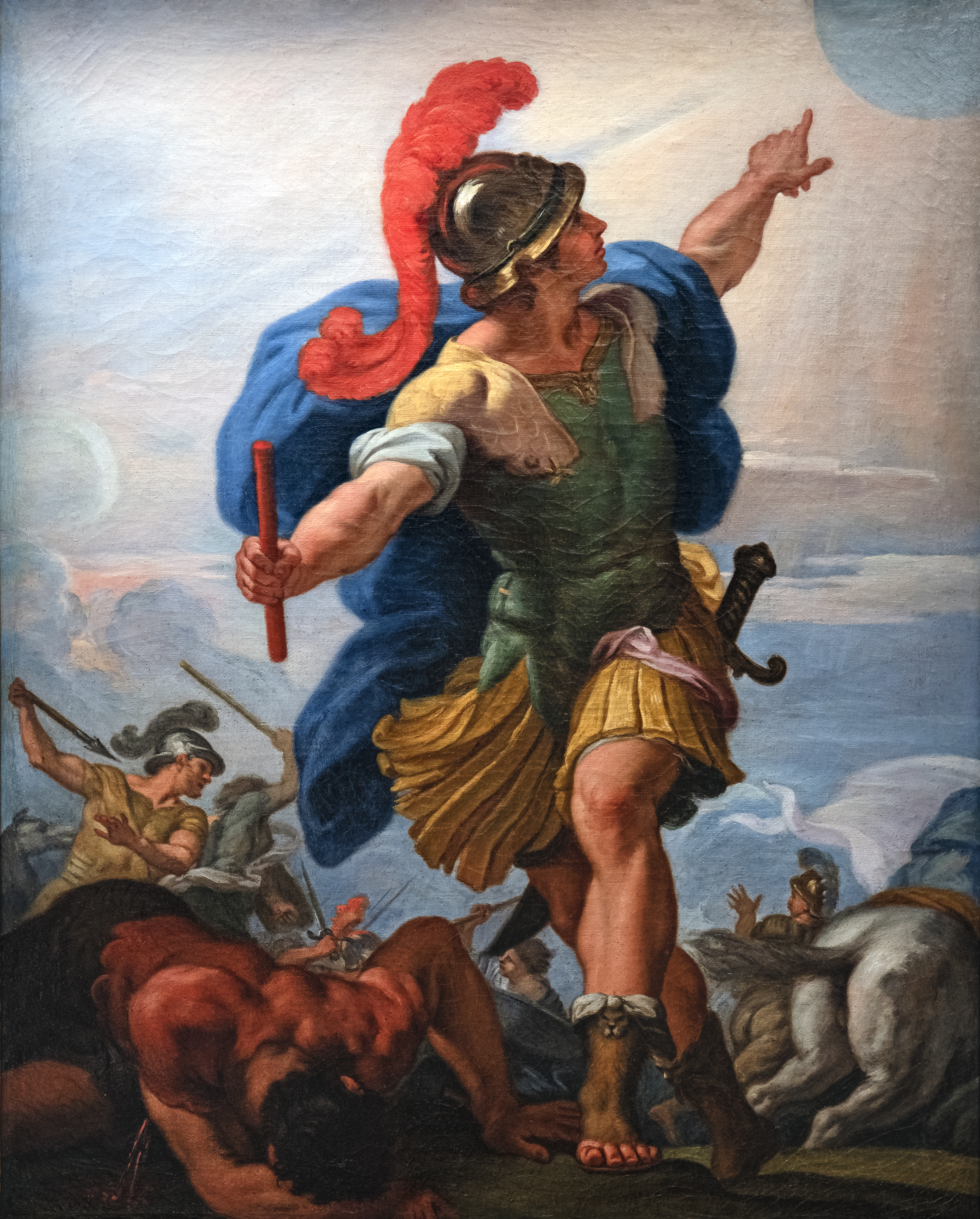
Joshua, Biblical Leader and Conqueror of Canaan
Ancient Israel
circa Ancient Israel
Timnath-heres in the hill country of Ephraim
Introduction
Key Contributions
Leadership in the conquest of Canaan, crossing of the Jordan River, battle of Jericho, covenant renewal at Mount Ebal.
Background and early leadership
The conquest of Canaan
The conquest of Canaan, as illustrated in the biblical Book of Joshua, recounts the Israelites' effort to claim the land promised to them by God after wandering in the wilderness for 40 years. This campaign was spearheaded by Joshua, who became the leader of Israel after Moses.
The journey begins with the miraculous crossing of the Jordan River, during which the water ceases to flow, allowing the Israelites to cross, an event that signifies divine approval. After crossing, the Israelites settle at Gilgal, where they renew their covenant with God and perform circumcisions, marking a new chapter in their collective history. Their first major win is the capture of Jericho. According to the biblical narrative, the walls of Jericho tumble down after the Israelites march around the city while blowing trumpets—a clear demonstration of God’s power and support for Israel.
Following the victory at Jericho, the Israelites face a setback at Ai, due to the disobedience of a man named Achan, who breaks the command regarding plunder. After addressing this issue, the Israelites successfully capture Ai, further establishing their dominion in central Canaan. From their base in Gilgal, Joshua leads campaigns to conquer the southern cities of Canaan, which includes Libnah, Lachish, Eglon, Hebron, and Debir.
The conquest then shifts northward, where the Israelites confront a coalition of Canaanite kings, led by King Jabin of Hazor. A pivotal battle occurs at the Waters of Merom, where the Israelites overcome this coalition. They decisively destroy Hazor—previously a significant city-state in northern Canaan—thus securing their influence in the region.
Following these military campaigns, the land is divided among the twelve tribes of Israel, marking the realization of God’s promise to their ancestors. The conclusion of the Book of Joshua reminds readers that God provided the Israelites with peace from their enemies while they took possession of the land as promised. However, Joshua cautions the people to remain loyal to God. He warns that should they turn to the remaining Canaanite nations, the support and blessing of God would no longer be with them—this foreshadows future challenges that Israel may encounter.
In essence, the conquest of Canaan is depicted not merely as a military achievement but also as a significant spiritual and covenantal fulfillment that represents the establishment of Israel within the promised land under divine guidance.
The division of the land among the tribes
The establishment of Israel's tribes
The role of faith in leadership
Military strategies and tactics
Legacy and impact on Israel
Summarize more, read faster.
Generate unlimited text summaries quickly and easily with our AI-powered summarizer.
Start Summarizing